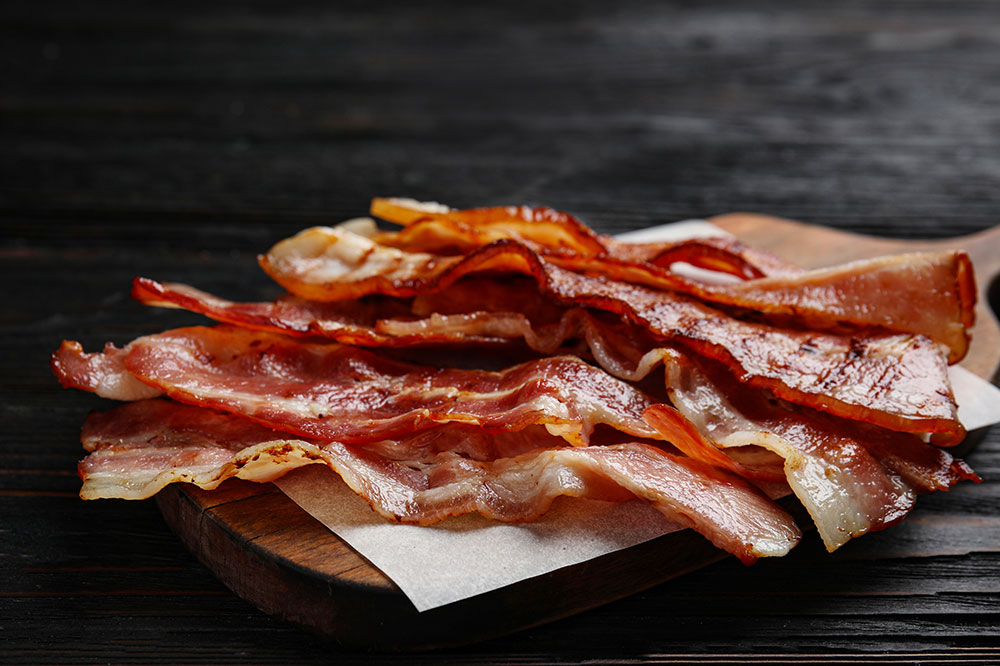
Foods to eat and avoid to manage kidney health
The kidneys play a vital role in getting rid of waste and extra fluid from the body. They are also responsible for removing the acid produced by the cells, thereby maintaining the balance of salts, minerals, and water in the body. In addition, the waste products filtered from the blood are eliminated through the urine. It is, therefore, vital to eat wholesome, nutrient-dense meals to keep these vital organs healthy.
Those with this chronic kidney disease should keep track of the food and fluid they consume. This is because the diseased kidneys cannot remove waste products from the body as effectively.
Given below are some of the foods that one should consume for the better functioning of their kidneys:
Fish
Fish such as salmon, herring, sardines, and tuna are rich in omega-3 fatty acids. This is an important nutrient that aids in blood clotting and builds cell membranes in the brain. It also decreases the risk of abnormal heartbeat and lowers blood pressure, as high blood pressure can lead to kidney disease.
Apples
Apples are known to be a good source of soluble fiber. They lower glucose and cholesterol levels and are a rich source of vitamin C. Apples contain lower levels of potassium, which can exacerbate kidney damage, and they are rich in pectin, which reduces some risk factors for kidney damage.
Kale
Another important food to eat to improve kidney health is kale. It is rich in vitamin A and C as well as calcium. It also contains vitamin K, which is a natural blood thinner.
Blueberries
Berries are low in calories and a good source of vitamin C and fiber. They also help to prevent heart disease and cancer. They should be added to one’s daily meal regimen, as these berries are low in sodium, phosphorus, and potassium.
Sweet potato
It is low in sugar and has a high amount of soluble fiber. This helps one feel full. The potassium in sweet potatoes balances the sodium levels in the body, thus maintaining kidney health. That said, too much potassium can be harmful for patients who are on dialysis or has chronic kidney disease.
Water
This is an essential one. It is necessary to drink ample water, as the cells in the body use water to transport toxins to the bloodstream. The kidneys filter these toxins out and create urine from the excess water. The toxins are then flushed out of the body with the excess water. Hence, water plays a crucial part in maintaining kidney health .
Foods to avoid
When one wishes to follow the right food regimen for their kidney health, they should also consider the foods that should be avoided. Some of these are mentioned below:
Red meat
Red meat is hard to digest. It is seen that people who consume a lot of red meat have a higher risk of end-stage kidney disease.
Phosphorus-rich foods
Too much phosphorus can put stress on the kidneys. Foods that are rich in phosphorus are dairy products, grains, legumes, meat, fish, and nuts.
Cabbage
Although cabbage is a leafy vegetable that is low in sodium and potassium, it contains some vitamins and compounds that are not good for the kidneys.
Salt
One should avoid table salt and food items high in sodium, as these can raise blood pressure.
Protein
Excess protein makes the kidneys work harder and also worsens kidney disease.
Calcium
If one has kidney issues, they may be asked to cut down on calcium supplements and calcium-rich foods such as dairy products.
Benefits of eating foods that are kidney-friendly
Since the kidneys play an important role in getting rid of waste and extra fluid from the body, one needs to take special care of them. They are key in maintaining the balance of minerals and fluids in the body. A kidney-friendly meal helps protect the kidneys from damage and ensures that the body is getting the right amount of protein, vitamins, calories, and minerals.
Following a good meal regimen for kidney health can help one improve the functioning of the kidneys. A certified dietician can help one create a meal plan that would control blood sugar levels. Limiting sodium and potassium and curbing excessive fluid intake can also prove to be useful.




